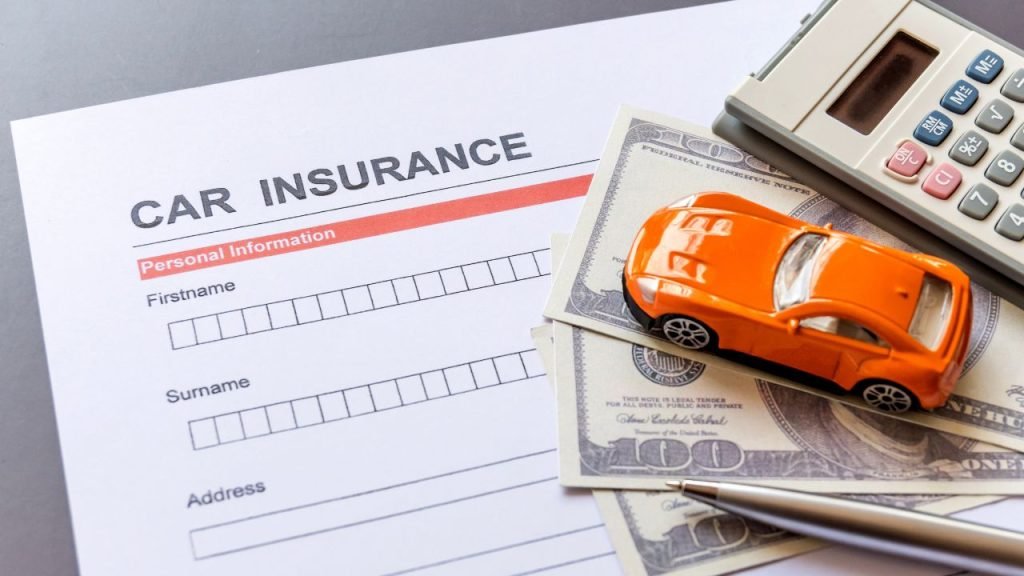Summer is here, and with it comes the joy of driving on long, winding roads with your windows down and your music blasting. However, as much as we love summer road trips and endless hours behind the wheel, it’s important not to forget about car insurance and liability.
In fact, summer months can come with their own set of unique insurance challenges that drivers need to be aware of. Car accidents can happen any time of the year, but summertime tends to see an uptick in certain types of accidents.
For example, there are more cars on the road during peak vacation season, which increases the likelihood of fender benders or more serious collisions. Additionally, extreme weather conditions like heavy rain or intense heat waves can affect driving conditions in ways that may lead to accidents.
That’s why understanding your car insurance needs and liability requirements during these months is essential for ensuring that you’re protected in case something goes wrong. In this article, we’ll take a closer look at some of the most common mistakes people make when it comes to summer car insurance and liability – so you know how to avoid them and stay safe on the road.
Table of Contents
Summer Driving and Insurance Policy Updates
Summer is a popular time for road trips, long drives to the beach, and other outdoor activities. With more drivers on the road, it’s important to ensure your car insurance policy is up-to-date and covers your unique summer driving habits. One of the most common mistakes people make when it comes to car insurance during the summer months is not updating their policy.
Summer driving habits may differ from other seasons, and this could result in gaps in coverage if you’re not careful. For example, if you plan on towing a trailer or using a rooftop cargo carrier for a summer vacation, you may need additional coverage to protect your belongings in case of theft or damage.
Or if you’re going on a cross-country road trip and plan on driving through multiple states with different minimum insurance requirements, it’s important to make sure your policy meets these requirements. To avoid any potential gaps in coverage or unexpected expenses after an accident, it’s crucial to review and update your policy accordingly before embarking on any summer adventures.
This may involve adding additional coverage options or increasing coverage limits based on your individual needs. Remember that even small changes in driving habits can have significant impacts on insurance premiums and coverages – so be sure to communicate any updates with your provider before hitting the open road.
Not Understanding Your Coverage Limits: What It Means for Your Summer Driving
Car insurance policies come with different types of coverage, each with its own limit. Coverage limits are the maximum amount your insurance provider will pay towards a claim if you are involved in an accident or if your car is stolen or damaged. Not understanding your coverage limits can lead to unexpected expenses that may not be covered by your policy.
This is one of the most common mistakes drivers make when it comes to car insurance and liability during summer months. Common coverage limits include liability, collision, and comprehensive coverage.
Liability coverage protects you in case you are found responsible for causing an accident that results in bodily injury or property damage to another party. Collision and comprehensive coverage protect you from damages to your vehicle caused by accidents, thefts, weather events, and other non-collision incidents.
What Are My Coverage Limits?
To avoid unexpected expenses in case of an accident or theft during summer driving season, it’s important to understand what your policy covers and what limitations it may have. Most insurance providers allow their customers to review their policies online or by calling customer service representatives for more information.
When reviewing your policy’s coverage limits for liability, collision, and comprehensive protection, consider factors such as the value of your vehicle, the number of drivers on your policy, and any pertinent state laws regarding minimum required coverage levels for these types of protection. In addition to understanding these basic limitations on a theoretical level, it’s also important to think about how they will impact you specifically based on how often you drive during the summer months — whether locally or across states lines –and with whom (such as new drivers added on temporarily).
The Importance of Checking Liability Coverage Requirements in Different States or Countries
Summer is the time when many of us pack our bags and hit the road for a much-needed vacation. Whether you’re driving to a nearby state or traveling abroad, it’s important to check your car insurance policy’s liability coverage requirements before embarking on your journey. Liability insurance covers damages and injuries that you might cause while operating your vehicle, so it’s essential to have the right amount of coverage to avoid legal issues or financial penalties.
Different states and countries have varying liability coverage requirements that drivers must follow. For example, some states require drivers to carry a minimum amount of liability insurance, while others allow drivers to choose between liability insurance and alternative forms of financial responsibility.
Similarly, in some countries, drivers are required by law to purchase additional third-party liability insurance before driving on their roads. Therefore, it’s crucial to research these requirements ahead of time to ensure that you have sufficient protection for your trip.
Not Adding Additional Drivers to Your Policy
How Adding Additional Drivers Can Affect Your Policy
One of the most common mistakes drivers make during the summer months is not adding additional drivers to their car insurance policy. While it may seem like an unnecessary expense, failing to do so can have serious consequences if the additional driver is involved in an accident while using your car.
When you add a driver to your policy, it affects your rates and coverage limits. Insurance companies take into account the driving history of all drivers listed on a policy when calculating premiums.
If one of those drivers has a poor driving record or has been involved in accidents in the past, it could result in higher premiums for everyone on the policy. Additionally, if an unlisted driver gets into an accident while using your car, your insurance company may deny coverage entirely.
Importance of Adding All Drivers Who Will Be Using Your Car During the Summer Months
It’s important to remember that any time someone else is driving your car, they’re also taking on some level of risk – and liability – that comes with operating a vehicle on public roads. Whether it’s a family member or friend borrowing your car for a road trip or someone helping out with errands around town, you should make sure that anyone who will be driving your vehicle during the summer months is listed on your insurance policy. Adding additional drivers to your car insurance policy isn’t just about protecting yourself financially; it’s also about being responsible and proactive about safety.
By making sure all drivers are properly covered under an insurance policy, you can help ensure that everyone involved is protected in case of an accident or other unexpected event. So before you hit the road this summer, take some time to review your existing auto insurance coverage and consider adding any necessary drivers – doing so could save you lots of trouble down the line!
The Importance of Reporting Accidents or Claims as Soon as Possible
It’s understandable that reporting an accident or claim may be the last thing on your mind after a stressful event, but it’s crucial to do so as soon as possible. Failing to report an accident or claim promptly can lead to complications and consequences such as increased costs or even denial of coverage.
The longer you wait, the harder it becomes to prove what happened and the more likely it is that evidence may disappear. When you report an accident or claim promptly, your insurance company can start processing your case and resolving any issues quickly.
This helps ensure that you receive the compensation you’re entitled to and it also allows your insurer to investigate the incident properly. Failing to report an accident in a timely manner could result in more delays, increased expenses, and even legal action if other parties involved decide to file a lawsuit against you.
Consequences of Delaying Reporting
One of the main consequences of delaying reporting an accident or claim is that it could lead to increased costs for repairs, medical treatment, car rentals or other expenses related to your case. This is because when there’s a delay in reporting, there’s often more time for damage or injuries to worsen which could result in higher expenses.
Additionally, if there are legal proceedings related to your case, delaying reporting can make defending yourself more complicated and expensive. Another consequence of not reporting accidents promptly is that insurers might deny coverage entirely.
Insurance companies require prompt notification so they can accurately assess damages and liability. If enough time has passed between the occurrence of an accident and its being reported – especially if it’s beyond policy deadlines – insurers might conclude they were not given fair opportunity for assessment.
Conclusion
While we hope you never have cause for filing an insurance claim this summer season – accidents happen! By making sure you don’t make one of these five common mistakes, you’ll be better prepared to take the appropriate steps when necessary. Make sure that your insurance policy is up-to-date, and that it covers all areas of your summer driving habits.
Be aware of different state or country laws regarding liability coverage, and make sure anyone who might drive your vehicle during these months is added to your policy. It’s important to remember that reporting accidents or claims promptly can help ensure the best possible outcome.
By doing so, you’re ensuring swift and efficient processing of your case by an insurance representative. Quick action ultimately helps prevent increased costs or even denial of coverage for damage caused by incidents on the road this season!






